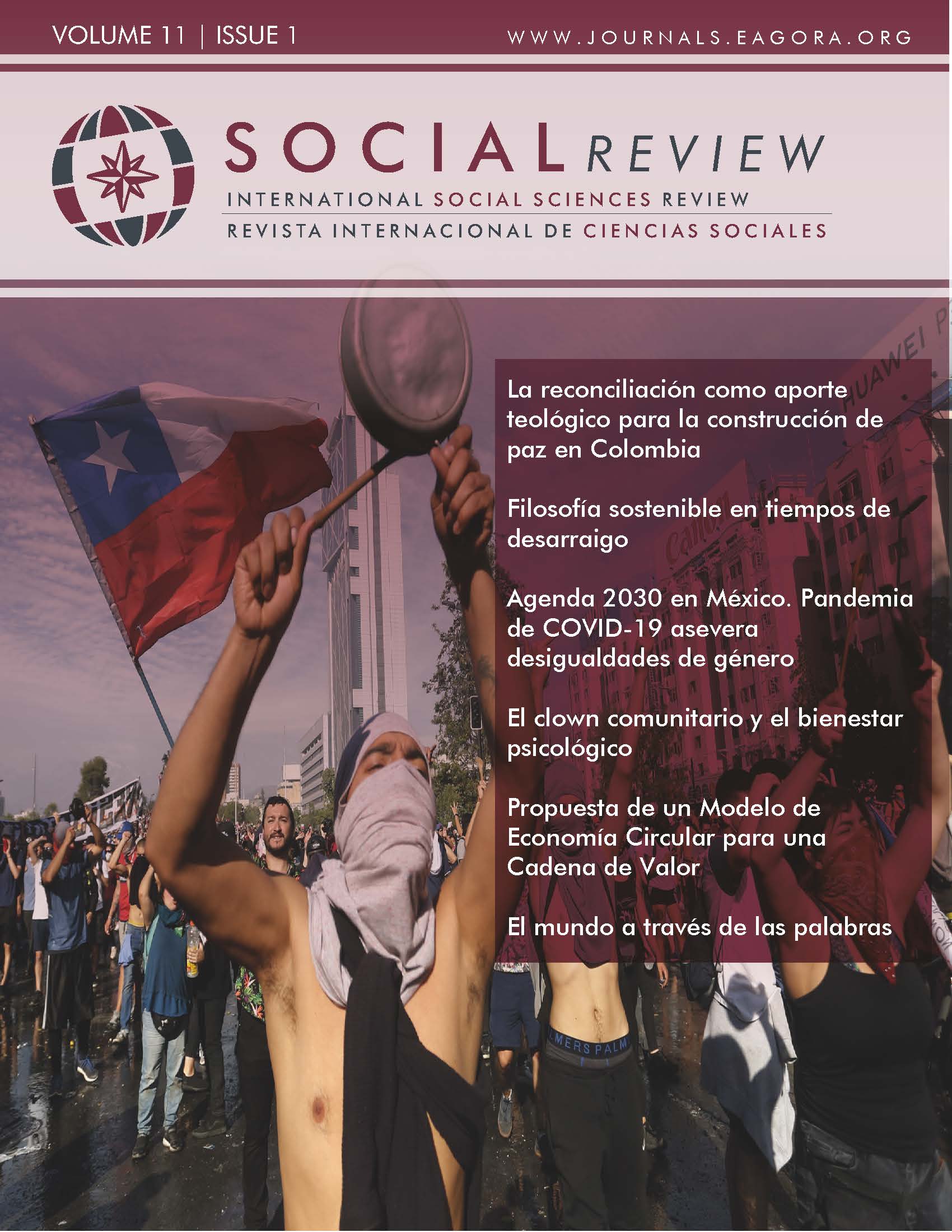Sustainable Philosophy in Times of Uprooting
For a Return to the Original Land as a Promise of the Future to the Others to Come
DOI:
https://doi.org/10.37467/gkarevsocial.v11.3272Keywords:
Earth, Proximity, Other, Future, Roots, Uprooting, SerenityAbstract
Our objective will be to reflect on the idea of rootedness by referring to authors as relevant as Heidegger or P. Sloterdijk. The meaning of human existence needs the depth of the earth. The essence of rootlessness lies in the fact of becoming a stranger to the homeland. We are going to reflect on the technique as a possible cause of current uprooting. Rootedness will be defined as the possibility of being close-to: close-to-oneself, close-to-the-Other, close-to-the-Earth, close-to-the-future, and close-to-death. This proximity could be recovered to the extent that we are able to rediscover the meaning of things.
Downloads
Global Statistics ℹ️
|
473
Views
|
138
Downloads
|
|
611
Total
|
|
References
Bateson, G. (1972). Pasos hacia una ecología de la mente: colección de ensayos en antropología, psiquiatría, evolución y epistemología. Ballantine Books.
Brague, R. (2021). Manicomio de verdades. Ediciones Encuentro
Fernández Vicente, A. (2016). Riesgos de la ciudad (digital) del futuro: control, guetización y desdarraigo. Andamios, 13(32), 15-35. DOI: https://doi.org/10.29092/uacm.v13i32.523
García de Teresa, M. (4 de agosto de 2020). El pensamiento mágico contra el «enemigo invisible», Nexos. https://cultura.nexos.com.mx/el-pensamiento-magico-contra-el-enemigo-invisible/
Guerra, A. J. (2020). Una filosofía de la sostenibilidad para la gerencia. Revista En Prospectiva, 1(1).
Heidegger, M. (1994). Serenidad. Ediciones Serbal.
Heidegger, M. (1994). Conferencias y artículos. Ediciones Serbal.
Heidegger, M. (1996). Y para qué poetas. En Caminos de bosque (pp. 199-238). Alianza Editorial.
Hock, D. (1999). El nacimiento de la era caórdica. Granica.
Maeding, L. (2017). Un espacio inhabitable. Hannah Arendt y lo utópico que surge del desarraigo. En M. Siguan y M. Riuspp (Eds.) Ex-Patria. Pensamiento utópico en las literaturas del exilio y la diáspora.
McLuhan, M. (2015). La aldea global. Gedisa.
Míguez Barciela, A. (2009). Comunidad y desarraigo. Aproximación al fenómeno pólis. ISEGORÍA. Revista de Filosofía Moral y Política, 40, 203-219. DOI: https://doi.org/10.3989/isegoria.2009.i40.655
Morin, E. (1990). Introducción al pensamiento complejo. Gedisa.
Ortega y Gasset, J. (1965). Meditación sobre la técnica. Espasa-Calpe.
Rilke, R. (1905) El libro de las horas. Pregunta Ediciones.
Rilke, R. (1929). Cartas a un joven poeta. Nordica Libros.
Rilke, R. (1977). Octava Elegía. En Elegías de Duino. Leviatán.
Sartre, J.P. (1972) El ser y la nada. Editorial Losada.
Simmel, G. (1986) El individuo y la libertad. Ediciones Península.
Sloterdijk, P. (2003). Esferas I, Burbujas, Microesferología, Ediciones Siruela.
Stein, E. (2002). La estructura de la persona humana. BAC Editorial.
Watzlawick, P. (2002). Teoría de la comunicación humana: Interacciones, patologías y paradojas. Herder.
Weber, M. (1981). La ciencia como vocación. Alianza Editorial.
Zuloaga, J. D. (2016, Agosto 24) Contra el «multitasking». El espectador. https://bit.ly/3NpFLIj
Downloads
Published
How to Cite
Issue
Section
License
Those authors who publish in this journal accept the following terms:
-
Authors retain copyright.
-
Authors transfer to the journal the right of first publication. The journal also owns the publishing rights.
-
All published contents are governed by an Attribution-NoDerivatives 4.0 International License.
Access the informative version and legal text of the license. By virtue of this, third parties are allowed to use what is published as long as they mention the authorship of the work and the first publication in this journal. If you transform the material, you may not distribute the modified work. -
Authors may make other independent and additional contractual arrangements for non-exclusive distribution of the version of the article published in this journal (e.g., inclusion in an institutional repository or publication in a book) as long as they clearly indicate that the work was first published in this journal.
- Authors are allowed and recommended to publish their work on the Internet (for example on institutional and personal websites), following the publication of, and referencing the journal, as this could lead to constructive exchanges and a more extensive and quick circulation of published works (see The Effect of Open Access).













